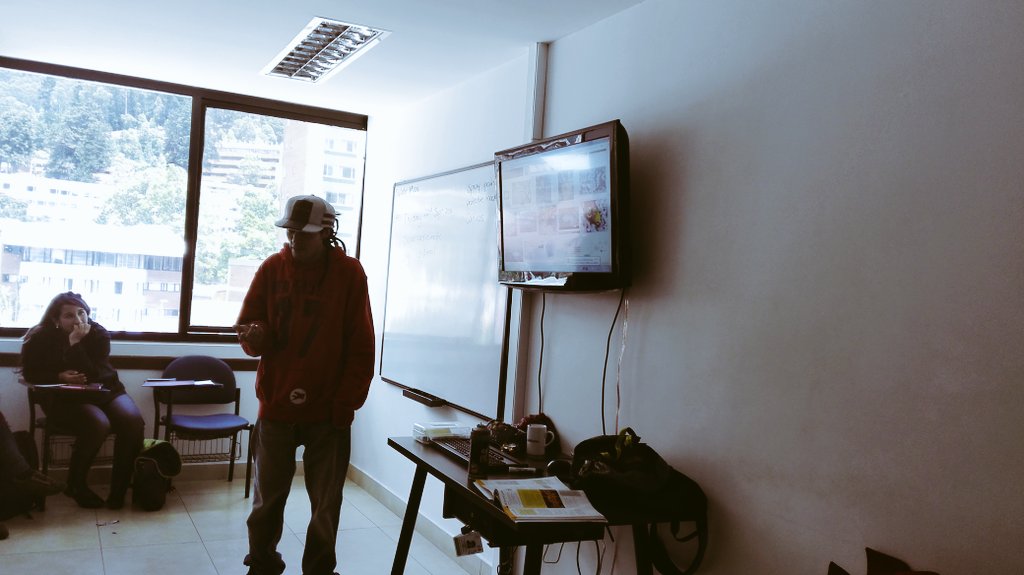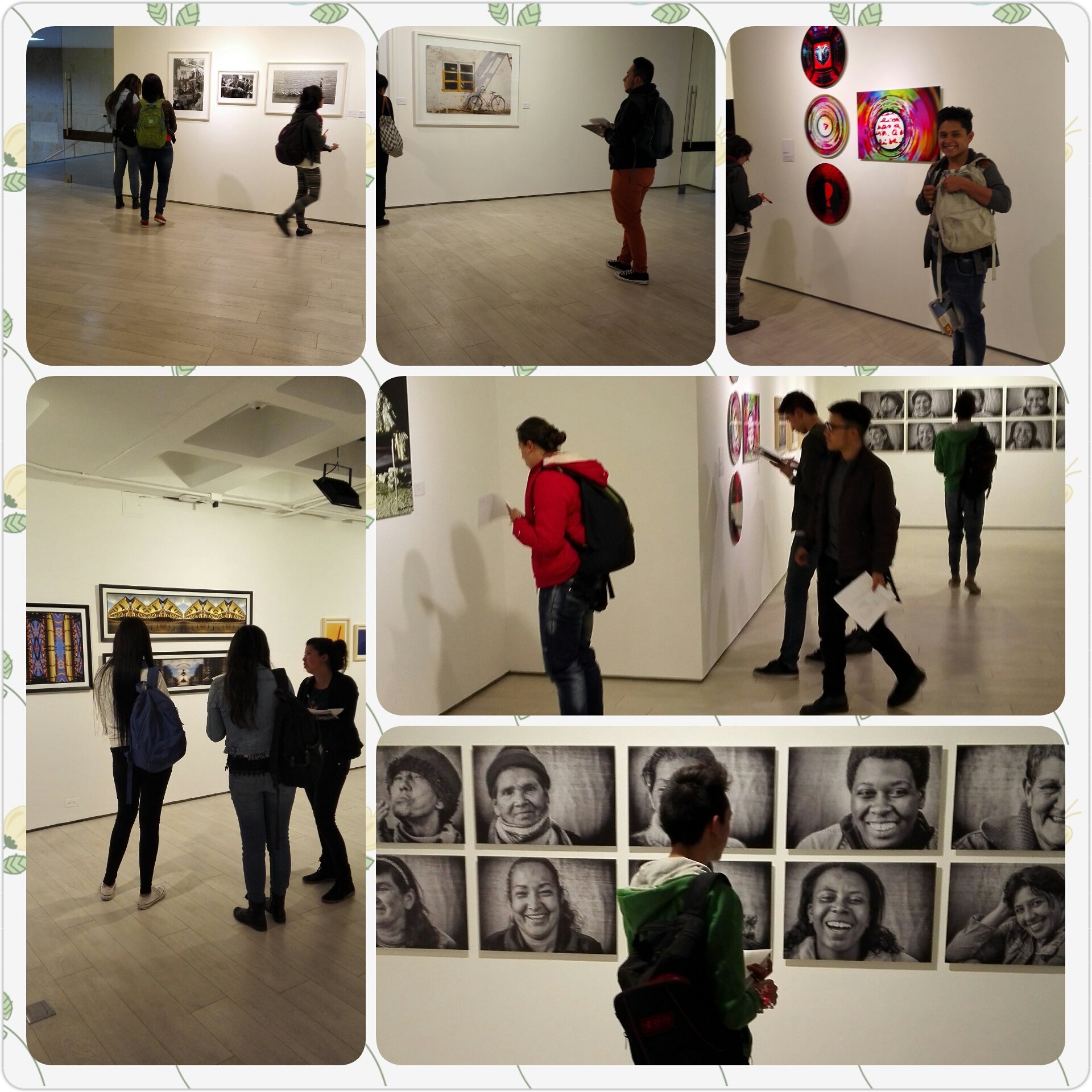Flipblogs topic August 16th
During last #Flipblogs chat, @flipping_A_tchr said that one of the main benefits of flipped learning was its flexibility within its set structure, and I think the principle of flexibility is precisely what has taken flipped learning further in my classrooms.
Before I delve into the changes I’m planning to make, allow me to give a bit of context. Currently, I’m a college professor. I work at Institución Universitaria Colombo Americana -ÚNICA, a teachers’ college in Bogota, Colombia. Our program, Teaching Degree in Bilingual Education is a small one and it welcomes students from underprivileged areas of the city. Normally, because of our inclusion policies, students who are not admitted to any other University to study to become English teachers are admitted into our program and we need to make sure they can cope with the academic demands. In the interest of facilitating our students’ learning processes, we are encouraged to innovate and find ways to help our learners, my way to do it: flipped learning!
Continuing with the context, I’m going to briefly present what I have done this past two semesters which take me to the innovations to carry out during 2017-2. I started at the UNICA in 2016-1. The course I flipped from the start was my English as a Foreign Language class. English 3, is an upper-intermediate course and as it is a general English course, it is supposed to cover all the communicative skills (Reading, Listening, Writing, Speaking) and the language systems (Vocabulary and Grammar). Even though we have 8 hours of direct contact a week, there’s still a lot to do! Go figure!
During 2016-2, I flipped the grammar component of the course through peer-instruction (Mazur, 1997). Students created the grammar videos to be “consumed” by the class and we used different accountability methods for every video. I introduced students to @crystalkirch ’s WSQ format (which I love and find extremely useful), we did Cornell notes, we used Playposit, we did Kahoots!, etc. Then, while in class, we did some grammar exercises mostly found in our textbook. Students loved this change because they had always worked with the traditional model where the teacher explained the grammar structures on the board. For them, the change made to instruction was amazing… but for me, it wasn’t enough…
During 2017-1, I focused on the group learning space even though, students still did the videos. Last semester, I noticed how I had focused more on the videos that students made and the accountability activities that went with them than on what happened in class. So, during the second semester of my implementation I decided to transform my group learning space. Good thing I was reading George Couros’ (@gcouros) book, The Innovator’s Mindset at the time, so I could try out many innovative ideas. For example, as an opening activity for a “grammar day” we sketchnoted the information found on the video on the board and students took pictures of it to take home and study. I could also work heavily on in-class flipping as I have understood and developed it with my colleague @martharamirezco . I did many station rotation activities where my students had opportunities to practice the grammar in different ways. However interesting and enjoyable, this flip still wasn’t good enough for me!
Sketchnote of the future tenses by Angi Perez and Mafe Salgado
Inspired by @sylviaduckworth
So this semester, 2017-2 I’m going for the flipped mastery model for the grammar component of my course. Very scary! But, very exciting. I’m really looking forward to seeing some good results out of this great experience. So, this is how I have framed it, because I’m no expert and this is the first time I’m trying this form of flipping.
- Students will use the same video playlists my past students designed (of course, I have permission!). I think peer-instruction is crucial for my students since they will be teachers! And as stated by Keck a d Kim as cited in Krulatz and Neokleous (2017), pre-service teachers’ beliefs of grammar teaching will be permeated by their own learning experiences, so in the hope that my students don’t graduate thinking they have to just lecture grammar structures, I vote for peer-instruction and video making.
- Students have the entire playlist for the course in our online platform. They also have grammar worksheets, websites and exercises to practice on their own.
- We will do grammar days or checkpoints where we will solve common problems experienced with certain grammar structures up to certain points in the course.
- Students will announce when they feel ready for taking the mastery check, which will be a communicative grammar quiz (still working on the design of these...daunting task!).
- Even though students are free to choose when to take the quiz to show mastery, I have been asking about how the process is going, how many grammar structures they’ve checked, but hey! We are ending the second week of the semester...there’s still time!
I haven’t thought about anything else this far. I just know students were really excited to hear they would be in-charge of deciding the pace of their learning. However, they also seemed scared the weight seemed to be on their shoulders and not on mine.
I’m really looking forward to our upcoming #FlipBlogs chat to hear from all of you, more experienced mastery teachers!
See you on the 16th!
References
Krulatz, A.
and Neckleous, G. (in press) Loop Input in English Teacher Training:
Contextualizing (pedagogical) Grammar in a Communicative Way. TEIS Newsletter. TESOL. US
Mazur, E. (1997) Peer-instruction:
Getting students to think in class. CP399, The Changing Role of Physics
Departments in Modern Universities: Proceedings of ICUPE, edited by E.F. Redish
ad J.S.Rigden. The American Insitute of Physics. Pp. 981-988




